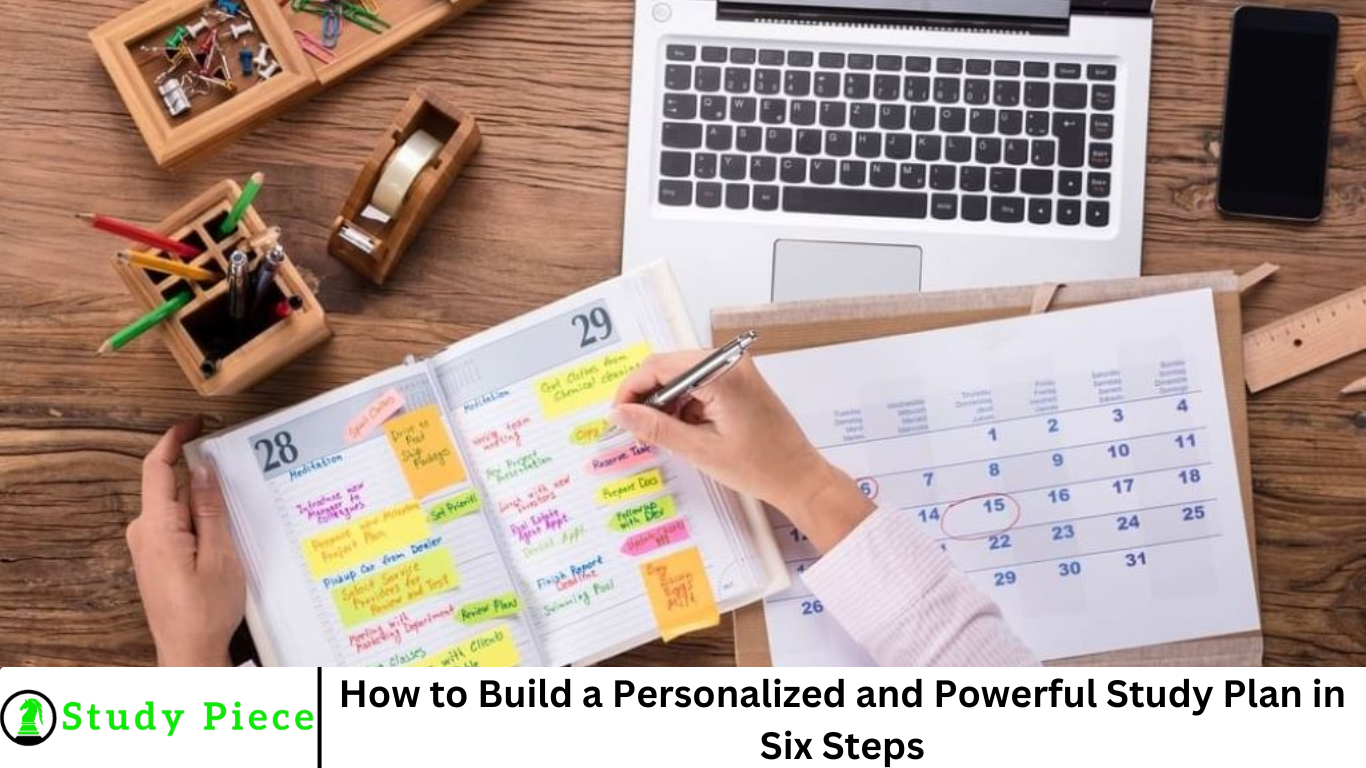Studying is an essential part of the learning process, and it is crucial for students to find effective methods that work for them. While studying alone can be productive, How to collaborate with peers for better study results is important too. Group study sessions provide an opportunity to gain new perspectives, share knowledge, and improve social skills.
By working together, students can maximize their productivity, encourage active participation, and build a positive and supportive group dynamic. In this article, we will explore the benefits of collaborating with peers in studying and provide tips on how to make the most out of group study sessions.
More Read: Adapting to Change: The Power of Flexible Planning in Reaching Your Goals
The Benefits of How to collaborate with peers for better study results
How to collaborate with peers for better study results tips offers several advantages that can greatly enhance the learning experience. One of the main benefits is gaining new perspectives. When studying alone, it is easy to get stuck in one’s own way of thinking. However, by working with others, students can gain fresh insights and different approaches to problem-solving. This can lead to a deeper understanding of the subject matter and help students think critically.
How to collaborate with peers for better study results – an advantage is the opportunity to share knowledge. Each student brings their own unique set of skills and expertise to the table. By sharing their knowledge and experiences, students can learn from one another and fill in any gaps in their understanding. This collaborative learning environment fosters a sense of community and encourages active engagement with the material.
Furthermore, tips on How to collaborate with peers for better study results will improve social skills. Group study sessions require effective communication, active listening, and teamwork. These skills are not only valuable in an academic setting but also in professional and personal contexts. The tips on How to collaborate with peers for better study results, students can develop their interpersonal skills and learn how to effectively collaborate with others.
Setting Clear Goals and Expectations for Group Study Sessions
To ensure that group study sessions are productive and efficient, it is important to establish clear goals and expectations from the beginning. How to collaborate with peers for better study results tips help to ensure that everyone is on the same page and working towards a common objective. Setting clear goals provides a sense of direction and purpose, which can help keep the group focused and motivated.
When setting goals, it is important to make them specific, measurable, achievable, relevant, and time-bound (SMART). For example, instead of setting a vague goal like “study for the exam,” a more specific goal could be “review chapters 1-5 and complete practice questions by Friday.” This gives the group a clear target to work towards and allows for better planning and time management.
In addition to setting goals, it is also important to establish expectations for group study sessions. This includes guidelines on punctuality, participation, and behaviour. By setting expectations, everyone in the group knows what is expected of them and can hold each other accountable. This helps create a positive and productive study environment.
Maximizing Productivity with Effective Time Management Techniques
Time management is crucial during group study sessions to ensure that tasks are completed efficiently and effectively. One effective technique is to create a schedule or timetable for the study session. This helps allocate time for different tasks and ensures that there is enough time for each topic or activity. It also helps prevent procrastination and keeps the group focused on the task at hand.
Prioritizing tasks is another important time management technique. By identifying the most important and urgent tasks, the group can allocate their time and resources accordingly. This helps prevent wasting time on less important tasks and ensures that the most crucial topics are covered thoroughly.
It is also helpful to break down larger tasks into smaller, manageable chunks. This makes the workload more manageable and allows for better progress tracking. By setting smaller milestones, the group can stay motivated and see their progress over time which makes it a great tip on How to collaborate with peers for better study results.
Encouraging Active Participation and Engagement among Group Members
Active participation and engagement are key to a successful group study session. It is important to create an environment where everyone feels comfortable and encouraged to contribute. One way to encourage active participation is by assigning roles and responsibilities to each group member. This ensures that everyone has a specific task to focus on and helps distribute the workload evenly.
Using interactive study methods can also help promote active participation. This includes activities such as group discussions, debates, and quizzes. These methods encourage students to actively engage with the material, ask questions, and share their thoughts and opinions. This not only enhances learning but also helps build critical thinking and communication skills.
Furthermore, it is important to create a safe and inclusive space where everyone’s ideas and contributions are valued. Encourage open dialogue and active listening among group members. This helps foster a collaborative learning environment where everyone feels comfortable sharing their thoughts and asking for clarification when needed.
Establishing Open Communication Channels for Feedback and Support
Open communication channels are essential for effective collaboration in group study sessions. It is important to establish a culture of open feedback and support, where constructive criticism is welcomed and help is offered when needed.
Encourage group members to provide feedback on each other’s work, whether it is reviewing study notes or practicing problem-solving. Constructive criticism helps identify areas for improvement and allows for continuous learning and growth. However, it is important to provide feedback in a respectful and supportive manner, focusing on the work rather than the individual.
In addition to feedback, it is important to offer support to group members when they need it. This can be in the form of explaining difficult concepts, providing additional resources, or offering assistance with challenging tasks. By supporting one another, the group can overcome obstacles together and achieve better results.
Leveraging Each Other’s Strengths and Weaknesses for Collective Learning
One of the advantages of studying with a group is the opportunity to leverage each other’s strengths and weaknesses. Each student has their own unique set of skills and areas of expertise. By assigning tasks and responsibilities based on individual strengths, the group can maximize their collective learning.
For example, if one student is particularly good at explaining concepts, they can take on the role of the “teacher” and help others understand difficult topics. Another student may excel at organizing information, making them well-suited for creating study guides or summaries. By recognizing and utilizing each other’s strengths, the group can work more efficiently and effectively.
Similarly, identifying and addressing weaknesses is also important for collective learning. By acknowledging areas where individuals may struggle, the group can provide support and resources to help overcome these challenges. This creates a supportive learning environment where everyone feels valued and empowered to improve.
Staying Focused and Avoiding Distractions during Group Study Sessions
Staying focused during group study sessions can be challenging, especially with the presence of distractions. However, there are several strategies that can help minimize distractions and maintain productivity.
One effective strategy is to set boundaries. This includes turning off or silencing electronic devices, such as phones or tablets, to minimize distractions from notifications or social media. It may also be helpful to designate a specific study area where distractions are minimized, such as a quiet library or study room.
Another strategy is to minimize interruptions by establishing rules for the study session. This includes avoiding unrelated conversations or activities during designated study time. By setting clear expectations and boundaries, the group can maintain focus and make the most out of their study session.
Promoting a Positive and Supportive Group Dynamic for Improved Motivation
A positive and supportive group dynamic is crucial for maintaining motivation during group study sessions. It is important to create an environment where everyone feels supported, encouraged, and motivated to achieve their goals.
One way to promote a positive group dynamic is by celebrating successes. This includes acknowledging individual achievements, such as completing a challenging task or mastering a difficult concept. Celebrating successes not only boosts morale but also reinforces the idea that hard work and effort are rewarded.
Offering encouragement and support is another important aspect of a positive group dynamic. By providing words of encouragement and support, group members can motivate each other to keep going, especially during challenging times. This creates a sense of camaraderie and teamwork, where everyone feels valued and supported.
Building Trust and Accountability through Consistent Follow-Up and Review
Building trust and accountability among group members is essential for effective collaboration in studying. Consistent follow-up and review help ensure that tasks are completed on time and that progress is being made.
One way to build trust and accountability is by setting deadlines for tasks and assignments. By establishing clear deadlines, the group can hold each other accountable and ensure that everyone is contributing their fair share. Regular check-ins and progress updates can also help keep everyone on track and provide an opportunity to address any challenges or issues that may arise.
In addition to follow-up, regular review sessions are important for assessing progress and identifying areas for improvement. This includes reviewing study notes, practice questions, or any other materials that have been covered during the study session. By reviewing together, the group can reinforce their learning and identify any gaps in their understanding.
Celebrating Success and Learning from Failures as a Team
Celebrating success and learning from failures as a team is an important part of the collaborative learning process. When the group achieves a goal or completes a task successfully, it is important to take the time to celebrate and acknowledge the collective effort that went into it. This not only boosts morale but also reinforces the idea that success is a result of teamwork.
On the other hand, failures should be seen as opportunities for growth and learning. When the group faces challenges or setbacks, it is important to reflect on what went wrong and identify areas for improvement. By analyzing failures together, the group can learn from their mistakes and make adjustments for future study sessions.
Reflection is an important part of the learning process, and it is important to encourage group members to reflect on what worked well and what could be improved. This can be done through group discussions or individual reflections. By reflecting together, the group can continuously improve their study methods and strategies.
Frequently Asked Question
Why is studying with peers more effective than studying alone?
Collaborating with peers allows for idea exchange, helps clarify concepts through discussion, and exposes you to diverse perspectives and problem-solving strategies, which enhances understanding and retention.
How do I find the right study group or partner?
Look for classmates who are motivated, reliable, and have compatible study goals. Joining course-related forums, study sessions, or campus clubs can help connect you with like-minded peers.
What are some effective peer collaboration strategies?
Techniques like group discussions, role-playing as teacher/student, breaking topics into subtopics, and using shared digital tools (e.g., Google Docs, Notion) are great for maximizing productivity.
What if my study group becomes unproductive or distracting?
Set clear goals, establish rules (e.g., no off-topic conversations), and assign roles (timekeeper, note-taker, etc.). If it continues to be ineffective, it may be time to reassess the group dynamic or find a new group.
How often should peer study sessions be held?
This depends on your workload, but once or twice a week is usually ideal. Regular meetings help reinforce learning without becoming overwhelming.
Can studying with peers help with exam preparation?
Absolutely. Group reviews can reveal gaps in your understanding, and explaining concepts to others is one of the best ways to reinforce your own knowledge before a test.
What tools or apps can support effective group study?
Tools like Zoom, Microsoft Teams, Google Drive, Quizlet, Notion, and Trello are excellent for communication, organizing notes, creating study materials, and tracking progress.
Conclusion
Collaborative studying is more than just working in groups—it’s about leveraging the strengths, insights, and support of your peers to deepen understanding and stay motivated. When done intentionally and with the right strategies, peer collaboration can transform the way you learn, helping you retain information better, solve problems more creatively, and prepare more effectively for exams. By choosing the right partners, setting clear goals, and using helpful tools, you can truly study smarter—together.



